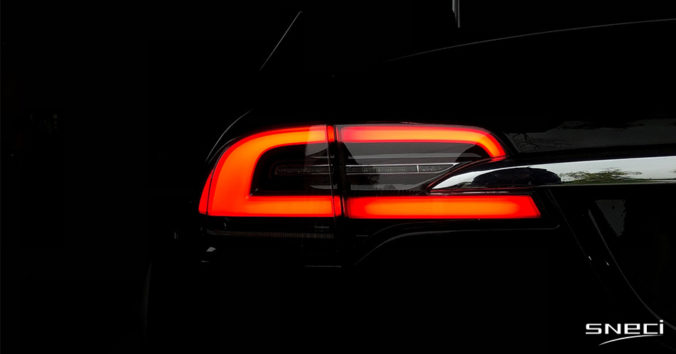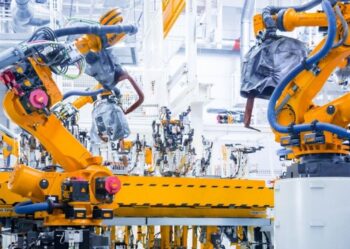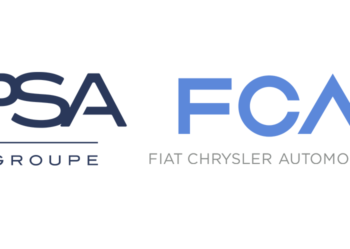French Automotive Industry Trends

Electrification, automation, and connectivity are the major French Automotive Industry trends. All three interconnected and crucial for both carmakers’ and auto part suppliers’ success. These trends disrupt the automotive world, shaping its yet rather blurry future.
Throughout the year 2019, we have witnessed the increased competition of traditional auto players in the field of both electric and autonomous cars. At the same time, new competitors have arrived with a more modern, digital background providing new connected mobility services and winning new markets every day.
Stepping into 2020, auto companies start to redefine their strategies for the years to come.
That is why we have decided to prepare a short overlook of the main French Automotive Industry trends and the strategies of French auto groups to cope with these new challenges.
Let’s have a closer look at each trend.
Vehicle Electrification
With over 27,000 charging points, France is ready for the expansion of electric mobility. Since the beginning of the year, the French electric chargeable vehicle (ECV) market has increased by 35.9% with 42 244 registrations. France represents nearly 14% of the EU ECV market and has the third most ECV registered in the first three quarters of 2019, after Germany and the United Kingdom.
Experts forecast that by 2025 only 26% of European car production will be dedicated to conventional vehicles. Mild-Hybrid propulsion system design will prevail with 47% of production share, followed by Electric (14%) and Full-Hybrid (12%).
Both PSA and Renault are expanding their line-ups with new electrified powertrains.
Today, Renault is one of the leaders on the European EV market where its ZOE is the second most popular electric vehicle with 31,182 car sales throughout the first eight months of 2019. Renault is also the first carmaker to have a complete EV line-up, including Renault ZOE, Kangoo Z.E., Fluence Z.E., RSM SM3 Z.E., and Twizy.
Taking advantage of Mitsubishi technology used in plug-in hybrid electric cars, Renault plans to have over 50% of its line-up electrified by 2020. Fully electric vehicles will cover the primary segments of Renault’s offering and will represent 20% of the company’s product range.
Likewise, PSA claims that 100% of its vehicle range will be electrified by 2025. This might be possible through PSA’s technological and industrial flexibility with the production based on two modular, multi-energy, and global platforms: CMP (Common Modular Platform) and EMP2 (Efficient Modular Platform 2).
Autonomous Driving
Self-driving cars are slowly but truly becoming a reality as all major car manufacturers are heavily investing in the development of the necessary technologies.
In fact, Advanced Driver Assistance Systems (the most important technology for autonomous cars) is now one of the fastest-growing automotive electronics segments.
French carmakers also follow closely the global car automation trend, trying to gain significant competitive advantages for the future.
Renault-Nissan-Mitsubishi is expecting to produce a fully autonomous “Robo-vehicle” by 2022 that will not require any human driver intervention. Until then, they plan a progressive introduction of new functionalities such as traffic sign recognition, lane-keeping assist, and automated emergency braking into their car ranges.
Similarly, PSA has launched AVA “Autonomous Vehicle for All” program that brings together a range of driving assistance functions already existing on their vehicles. This program will lead eventually to the creation of a fully autonomous car. PSA aims to build a self-driving car that is simple yet safe and comfortable.
French automotive groups are not facing the challenges of self-driving technologies alone. They are often supported by various independent research & development institutions, like UTAC CERAM, Mov’eo, and VEDECOM.
UTAC CERAM has launched an innovation center dedicated to the development and homologation testing of connected and automated vehicles, called TEQMO®, in 2018. Over 12 km of testing tracks and associated facilities are located in the center of the legendary Autodrome de Linas-Montlhéry (Île-de-France).
Besides, two big French innovation clusters are working on this topic, Mov’eo, Mobility and Automotive R&D competitiveness cluster, and VEDECOM, French Institute of public/private Research and Training dedicated to sustainable mobility (ecological, autonomous, and shared).
Connected cars
Probably one of the most important trends, considering that 100% of new cars are planned to be connected by 2025.
As a car stops being just a product and becomes a service, it requires better connectivity with the outer environment. Connected cars are vehicles capable of communicating with the external world. This includes communication with other vehicles to avoid collisions or with road infrastructure to detect accidents and analyze weather conditions.
When we talk about connectivity we don’t mean only multi-screen experience or connected infotainment. Connected cars were to a bigger extent developed as a result of massive urbanization and the creation of such new ways of mobility as car-sharing and car-hailing.
France is the most successful market for P2P (Peer-to-peer) car sharing in Europe. P2P comprises nearly 90% of car-sharing with more than 1 million users in 2018.
Both PSA and Renault have launched their car-pooling services. About 1,400 “free-floating” electric vehicles are deployed in Paris, including those of Moov’in Paris (Renault) and Free2Move Paris (PSA).








